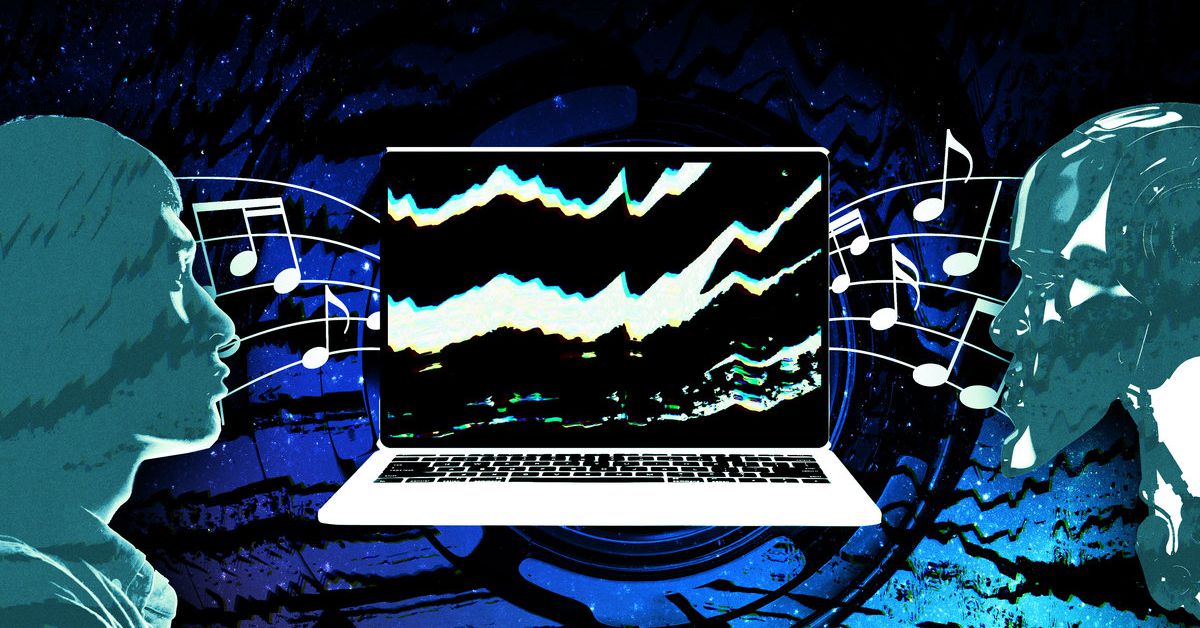My optimistic outlook is that most of the musical spaces I reside in will likely shun or be immune to whatever norms develop regarding AI. I personally care deeply about the fact that the music I listen to is made deliberately and thoughtfully by a human being, and I like to think there are many others who feel the same way.
More cynically though, I’m worried about AI taking market share away from music “made by humans”. If this becomes the norm, maybe there just won’t be money in doing things the old fashioned way. Maybe the type of musicians I want to listen to would be discouraged from making music in this new climate.
Personally, I’m looking at AI in music as the modern equivalent of the introduction of sampling in the 80s. Loads of people lost their minds back then - “Nobody has to be able to be able to play instruments anymore”, “It’s cheating”, “Sampling isn’t real music”, etc etc, and look at how ubiquitous sampling is now, and how literally nobody with half a brain thinks that sampling is “cheating” and anyone using a sampler isn’t capable of making “real” music. Sure, it’ll take a while for the whole AI thing to settle down and find its place in composition and production as artists learn how to best integrate it into their creative flow, and inevitably there will be people who use it to make up for a lack of talent and who might even get lucky and have a hit with fully AI generated compositions, but most artists are going to learn how to use it as a tool to expand their repertoire or to generate ideas from their own ideas, rather than as a replacement for their own creative input. I can easily imagine bands like Radiohead already having spent weeks training models to their own specifications to work within their specific requirements, rather than replace them or using publicly available models that won’t give them the results they want.
I think a few specific markets are going got be more impacted than others - music for low budget films and YouTube content creators are the main areas which I think will benefit mostly from purely AI generated music (and current people working in these fields may have more to worry about than most). Rather than worrying about paying royalties for music playing in the background of an Italian cafe scene in your 1940s-set drama, you can generate a unique piece which fits with the scene perfectly with nobody needing to research copyrights or anything like that. Same for YouTube videos where you just want a catchy hook looping in the background over you talking about whatever - no need to worry about getting your video taken down for copyright issues when the music was created by a text prompt ten minutes before you uploaded it.
Pop music, whatever your personal interpratation of that may be - from The Greatest Showman soundtrack, to Warp records output, to vaporwave, to K-pop, to whatever’s on the current Radio Six playlist, I don’t believe will suffer from the introduction of AI, as the people creating music that people love to listen to will not allow their own creative input to be overshadowed by AI generated content, but probably will be happy to see what using this new tool can add to their creative output. Some artists will embrace it more than others, and others will completely shun it, but to go full circle to my opening sentence, I believe those people are the equivalent to the people saying that samplers will be the death of “proper” music back in the day. And like how the sampler is virually ubiquitous across all genres of music now, I believe that even those genres that shun AI currently will eventually see the value once the pioneers have figured out exactly how to use it effectively.
(Edited a bit for clarity and adding a couple of other thoughts - oh, and I’ve got to be honest, I haven’t read the article!)
I think it’s most likely to take the role of the commercial songwriters that write formulaic pop. The people that team up with folks like Ed Sheeran and Lewis Capaldi to squeeze an album out of them in time to fulfill their contracts.
The formulaic pop won’t be much different. The pop stars will be much the same with up to date fashion. The people at the label will make more money because there will be fewer people to pay.
Writing music as a commercial venture is already pretty icky in my mind. It’s sort of the artistic equivalent of learning pickup lines and using them on people rather than having an interesting conversation.
Music as art won’t die but jobs as commercial composers and songwriters will dwindle.




